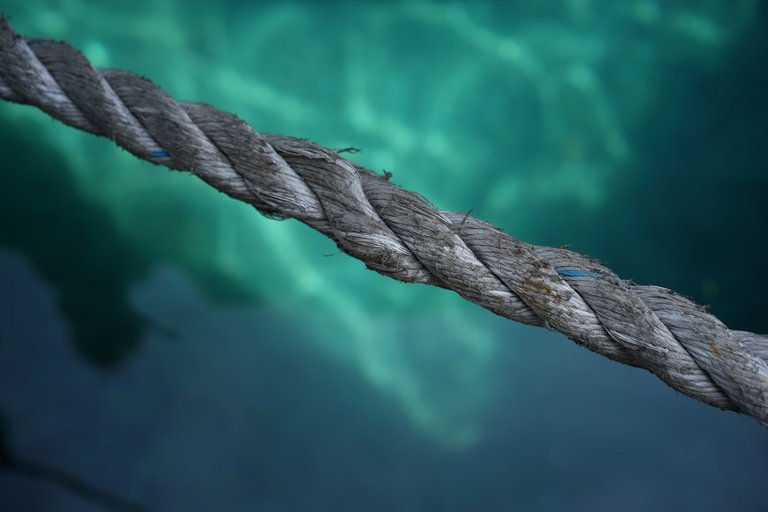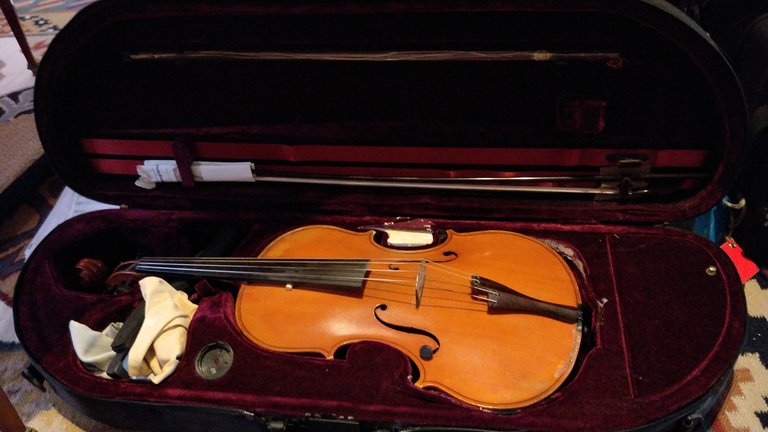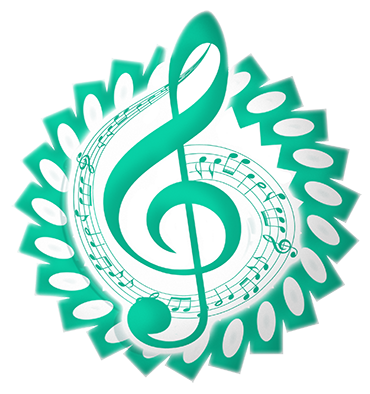No one likes 466Hz... (Monteverdi Vespers...)

Sigh... this weekend's project is a Monteverdi Vespers... A really nice piece from the Early 17th century, but more than a touch out of my area of expertise and comfort... a fairly low key performance, but one that is introducing more headaches (aside from child juggling problems....) than I find that the music is worth!
So, to begin with... I'm a specialist in Early Music, so mostly mid to late Baroque and the Classical eras of music on historical instruments and with an historically informed way of approaching the music (guess what, much has changed in the intervening centuries, and the regular "Classical" musicians of the present ignore that fact and assume that everything is pretty much the same as if it was printed today... which, if you look at artworks, architecture and literature... is quite an odd proposition to start as a base assumption...)
Last week brought me a last minute call to fill in as a Tenor Viola in a performance of Monteveri's Vespers... this is the sort of music that was around in the early 17th century (this piece was from 1610). So, it was composed about a century before where I start to feel comfortable with the musical language and styles of performance. However, seeing as this is a relatively low pressure performance, I took the job (how is that for foolhardy and "courageous")... as the Tenor Viola is pretty basic music, I don't need to know too much in depth about the correct ornamentation and embellishments that the VIolins will be required and expected to perform. That said, many people (not just musicians...) take jobs that they aren't suited or qualified for... and have no qualms or second thoughts about it... perhaps this will be the case for the other instrumentalists here!
Anyway, the instrumental ensemble is going to be sackbuts and a string consort... so, early trombones and stringed instruments. Unfortunately for me, that also means that the pitch will be higher accepted pitch for the early Italian music... A=466Hz, which is a semitone above the modern pitch A=440Hz and a whole tone above my usual Baroque Pitch of A=415Hz. This means that the strings need to be put under a much greater tension (you need to tighten them up...) and if I was taking this more seriously, that would mean that I would use thinner strings, so that the higher pitch is achieved without having a crazy amount of tension through them.
However, I need my Baroque Viola for other things in the week, so changing strings was out of the question... and changing pitch day to day was also out of the question (gut strings really don't like that... they tend to not hold pitch or snap under fast changes.)... In the past, when I've had to play at a higher pitch, I've just borrowed a friend's instrument and just subjected it to the higher tension... it's not really something that I like to do to my own instruments though!

This means that one of my lesser used Violas gets the job... this Australian viola (looks terrible, but plays and sounds great!) is the unlucky winner... stripping off the two top strings for pure gut, and leaving the modern steel strings on the bottom (I'm lazy... and the lower strings cost a fair bit... just for one job, it isn't worth it...). A side effect is that it is quite a large viola as well, so well suited to the low registers of the Tenor Viola part.
So, I put on the gut strings about a week ago... and have been slowly ramping up the tension on the instrument... it complains, with great creaks which are amplified by the soundboard... so, it sounds much worse than it really is... but it is still quite horrific to listen to. Today, I've got it at pitch, and it appears to be holding... just in time for the first rehearsal tomorrow!
However, there is more annoyances to come... the music from that era (early Italian 17th century...) is really a pain in the arse to read... with block printing being the norm (so, every note is individually standing by itself...) which I find to be terribly unclear and hard to read in large chunks. It is also in tenor clef (both the C clef and the transposed treble clef) which are different to the alto, treble, French treble and bass clefs that are much more the norm for later (late 17th century....) music. I've had to just write in a couple of note names... just in case... you never know at the performance when your long ingrained habits will kick in and kick you in the arse with a misreading....
... and finally.... at that time, they didn't believe in the use of bar seperators... so, everything is more like a complete stream of consciousness writing.... to my eyes, it is as if they didn't use spaces/paragraphs or any punctuations at all... BLEAH! Anyway, I've marked in a couple of main beats here and there just to aid me every now and then...
... the singer that asked me to do this job is really a Gregorian and Early Italian specialist... so, I'm hoping to completely #$%#$% things up... however, I do feel a touch out of my depth.... luckily, it is on a small and unimportant part... and I only need to survive a 2 hour performance!
All of this is much more preparation than I usually do for my performances... normally, it is pretty seamless between reading and playing... so, pretty much like reading a book for other people is the analogy that I would use... however, this time... I feel like I'm a complete beginner again! There is a definite lag between reading... brain processing... and playing... I can't say that I'm terribly fond of it!


Account banner by jimramones


Do trills begin on the upper or lower note?...
From my hazy memory of this sort of music (again, not my usual stuff....) they start on the note in this sort of music... however, more often there are diminutions rather than real "trills"... and these diminutions (which can be trill-like...) are usually one note per bow sort of fast things... I remember that it would always get really annoying if you haven't really hard-wired these ornaments in... as you end up with down or up bow exits when your brain is thinking you will exit the other way... of course, I guess you could practice them and not deviate from teh script... but where is the fun in that?
Thankfully... the Tenor Viola doesn't need to add much in this particular music... maybe if it was secular music I would... but not this!
@untersatz curate 100
The @untersatz witness and manual curation is under the guidance of @contrabourdon and @organduo.
Thanks for the curation!
To listen to the audio version of this article click on the play image.

Brought to you by @tts. If you find it useful please consider upvoting this reply.
Your post has been supported and upvoted from the Classical Music community on Steemit as it appears to be of interest to our community. We also support jazz and folk music posts!
If you enjoy our support of the #classical-music community, please consider a small upvote to help grow the support account!
You can find details about us below.
The classical music community at #classical-music and Discord. Follow our community accounts @classical-music and @classical-radio or follow our curation trail (classical-radio) at SteemAuto!
Delegation links: 10SP, 25SP, 50SP, 75SP, 100SP, 150SP, 200SP, 250SP, 500SP, 1000SP
You can find the community announcement on Discord :) and it has also been shared on our FB Page and Twitter feed.
Thanks for the feature!
It would seem that the sheet music could be adapted and arranged to the modern style with bars and having the notes placed the modern way, rather than the way it was in the 17th century.
It seems it would be easier to read that way, and it would still sound as it should. Or would it be considered musical blasphemy to do that?
No, it isn't blasphemy... many "modern" musicians will do that.
However, by notating it in a modern way, you lose some nuance and add in extra "interpretation". For instance, most of the music is of a form that is polyphonal and cascading... with no real "lead" voice and no strong sense of a beginning or end... however, with the introduction of bars it already gives a sense of a beginning (the starts of the bars), a sense of on/off beat and all of that sort of thing... just to name a few things.
So, most people who play "Classical music" would do that... however, in our specialisation, we avoid doing that.... as the resetting of the music score does introduce a lens of sorts.
Cool I would love to see & hear your performance 😊😊
Posted using Partiko Android
Thanks... I do have little bits posted here on STEEM... maybe I will do up a compilation again for a different post sometime!
I used to do some concerts when I was playing music and found that the old style of music was interesting, but one day I felt that I'd had enough and moved on to jazz and blues which is more popular and for me more fun...
Haha... yes, definitely much more popular... however, the Early Music styles (not your regular Classical Music) are very similar in concept to jazz, where the score is only a skeleton to be improvised upon in real time.
Isn’t it so that a mans instrument 🎻 sets to your body etc so when another musician plays the instrument it’s different in sound , and that you can better not borrow your instrument to someone else or is that untrue ?
In part it is true.... although, alot of it has to do more with musicians just generally being precious.
Each person does have a preferred style of playing... which means that they are likely to be attracted to instruments that complement that. However, it shouldn't mean that you CAN'T play another instrument... just that you might not be initially as comfortable with it.
It's like driving a car, if you hop in someone else's car... it shouldn't be a problem... but it is a little strange.
However, some musicians take it too far and get prima donna about it. Me, I have many instruments and I change all the time (sometimes, even in the same concert...)... so, I'm a bit more practical... I can't afford to be precious!
Music, and classical music especially, is definitely a complex art. Wish you a happy delivery inthis challenge. Most musicians, as you point out would not bother about the intricacies of epoch in which the music was produced and the characteristics of the instruments used then.
I'm sure your efforts to cover all the details will yield a great performance.
Thanks! It did go nicely... It's funny, as I have been doing this for so long... it feels like just a nice game in real time to me!
I know nothing about reading or playing music but love to listen. The old classical music always sounds beautiful to my ear.
I’d love to hear your performance- you will do a great job in whatever music you tackle, @bengy. 🎼
I will eventually post up a compilation of some performances that I have the rights to share... One day....
Sooo nice seeing another familiar face @bengy, I love the classics and a violin is my absolute favourite, I didn't know all the changes that has to be made for different genres! I used to play the piano up till my late teens but stopped and battle now to read the music, I'm determined to get back BUT my old piano needs fixing! Someone said I should just buy a modern Japanese piano but I just don't have that kind of money right now so I have to be content to simply listen!
Posted using Partiko Android
Hi... and welcome to the powerhousecreatives! Great to see you here!
Yes.... there are many different eras of music (after all, for Western Classical music... it covers over 4 centuries...). However, most Classical musicians (the ones that people normally associate with the field) don't care... however, this specialist field that I work in, Early Music, is really quite concerned with the historical perspective and context within which each piece and composition exists in. After all, it is only obvious in other fields that this is the case... however, music got hijacked somewhere along the line...
You got this! You're going to be great.
Thanks... I don't think anyone was critically injured!
Where have you been? I love your work! I know I've read your stuff before, but twice today you have wowed me.
I'm a novice violinist who has been studying the instrument on and off since I was ten years old, nearly 55 years ago. I marvel at what you are able to hear in your instruments. The description of what you have to do to get ready to play a gig you feel inadequate for (and will probably succeed beautifully in) is riveting (@carolkean gave me that word today and she/you might like to read this guy's stuff). I learned so much. It's hard for me to read modern music, how on earth do you read the other at all? And why hasn't it just been rewritten so you can more easily read it? Or is there some cachet in playing from more primary sources for you early musicians? Thank you so much for your work in preserving the music.
I hope it goes well! From what I can know from this post and others of yours, if anyone can pull it off, you can. Perhaps we will hear a snippet or more of it here on steem?
Haha... thanks, I just plug away quietly... before coming to STEEM, I really never wrote anything... but since coming here, I find it is quite nice to just think and write. Sometimes with more success, other times... less.
The violin (and Viola and viola d'amore) has been with me for quite some time... and it is my profession... well, at least people pay me, and don't throw anything hard... I love doing concerts (less so rehearsals....), there is always so much to discover and play with during the performance... although I'm sure that there are some colleagues that would prefer that I was less of a chaos monkey...
The older notations are something that you learn to read... most of the time, the best way to learn is to just getting dumped in the deep end with a concert in a day or two. You'd be surprised how fast you learn when the alternative is public humiliation!
There are certain advantages to reading from the original sources... the most important is that the composer isn't being filtered and "interpreted" by an editor (much of the modern reprints are well intentioned "improvements"... sometimes the original is barely there!) ... of course, there is the problem of terrible handwriting and short cut time saving writing (the musical equivalents of "ditto"). After the invention of the more advanced Amsterdam printing to place the block printing(around 1700....), the music is much easier to read (but still more more beautiful than the modern print.
Another thing that is hard to re-create in modern versions is the idea that the score was a skeleton to embellish upon in real time (like jazz)... improvisation is an art that is lost the the "normal" Classical musicians... and so, they often need to have things written out completely for them.
I'm afraid that I don't have the rights to share this concert... but I think I will piece together some things that I've posted in the past!
Why thank you for answering all my questions. And I would LOVE to hear you play.
My pleasure... maybe I will try and do a little post this week with things that I've previously shared here.
Congratulations on you new gig @bengy, I'm sure you'll do great.
Posted using Partiko Android
Ah... these ones come often enough... annoyingly enough... it is bloody freezing in the church... and the scheduling was crap... so, most of us were just sitting around doing nothing... well, at least we get paid for doing that.
Congratulations @bengy
Thank you!
Avery clear depiction of the challenges here my friend, but always remember that these challenges sharpens your axe.
A frozen violinist out of tune you will certainly not be and hopefully you will warm many hearts with your music.
Good luck with the performance my friend!
Blessings!
Yes... learning via direct challenges to your skills is really the best way to hone those skills... in the end, it went much better and easier than I had expected!
Simply because you are a master my friend!
Any other soul would have battled.
Blessings!
I see stress that I would not have imagined ... but now I consider it normal. Specific to the artists, hard but beautiful!
Yes... more annoyance than real stress... but in the end, I under-estimated my ability... it went much better and easier than I had feared!
Congratulations @bengy. I know nothing about this type of music except the fact that I love to hear the violin played.
Thanks.... the violin is a great instrument! When it behaves...
Being able to appreciate and play music is a true talent.
Something so beautiful and fragile because it is only that very moment everything else doesn't matter but the sound of the music flowing through our minds and soul.
It is great fun to play! I feel lucky to have a profession where I feel like I am challenged and at play in my "work"!
Would've upvoted even if not a Rally Upvote post.
In Lak'ech, JaiChai
Ha, thanks!